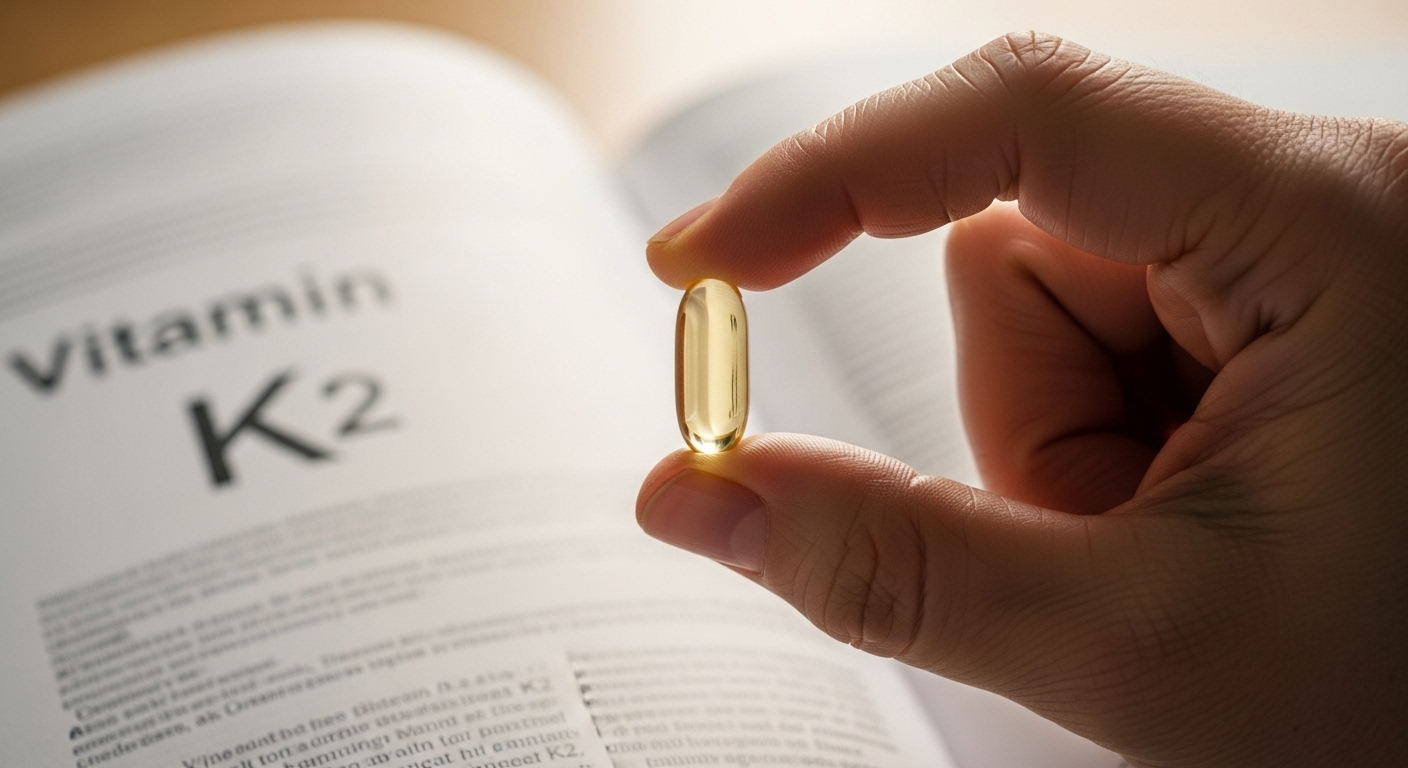Vitamin K2: The Unsung Hero of Bone and Heart Health
Vitamin K2, a lesser-known nutrient in the vitamin K family, has been quietly gaining attention in the scientific community for its crucial role in bone and cardiovascular health. Often overshadowed by its more famous cousin, vitamin K1, K2 has emerged as a potent player in calcium regulation and arterial health. This fat-soluble vitamin, found primarily in fermented foods and animal products, has been the subject of increasing research over the past few decades. Its unique ability to activate proteins that direct calcium to the bones and away from soft tissues makes it a vital component in maintaining skeletal strength and preventing arterial calcification. Despite its importance, vitamin K2 remains underappreciated and under-consumed in many Western diets, leading some experts to call for greater awareness and potential supplementation.

Vitamin K2 exists in several subtypes, known as menaquinones (MK), ranging from MK-4 to MK-13. The most studied forms are MK-4 and MK-7. MK-4 is found in animal-based foods and can be synthesized by the body from other forms of vitamin K. MK-7, on the other hand, is primarily produced by bacterial fermentation and is found in fermented foods like natto, a traditional Japanese dish made from soybeans.
Mechanisms of Action: Beyond Blood Clotting
While vitamin K1’s primary function is in blood coagulation, K2 plays a more diverse role in the body. Its most significant function is activating proteins that regulate calcium distribution. Two key proteins activated by K2 are osteocalcin and matrix Gla protein (MGP).
Osteocalcin, when activated by K2, helps bind calcium to the bone matrix, improving bone density and strength. MGP, on the other hand, prevents calcium from depositing in soft tissues like arteries and organs. This dual action of promoting bone mineralization while inhibiting vascular calcification has led researchers to view K2 as a critical factor in both skeletal and cardiovascular health.
The Rotterdam Study: A Turning Point
The groundbreaking Rotterdam Study, published in 2004, marked a significant milestone in vitamin K2 research. This large-scale, population-based study followed 4,807 participants over seven years and found that higher dietary intake of vitamin K2 was associated with a reduced risk of coronary heart disease, all-cause mortality, and severe aortic calcification.
Importantly, the study showed that K2, but not K1, was inversely associated with these cardiovascular outcomes. This distinction highlighted the unique properties of K2 and sparked increased interest in its potential as a therapeutic agent for cardiovascular disease prevention.
Synergy with Vitamin D and Calcium
One of the most intriguing aspects of vitamin K2 is its synergistic relationship with vitamin D and calcium. While vitamin D is crucial for calcium absorption, K2 ensures that the absorbed calcium is utilized correctly in the body. Without adequate K2, increased calcium intake might lead to inappropriate calcification in soft tissues rather than strengthening bones.
This interplay has led some researchers to suggest that the combination of vitamins D and K2 could be more effective in preventing osteoporosis and cardiovascular disease than either nutrient alone. This synergy also underscores the importance of a balanced approach to supplementation and diet, considering the complex interactions between nutrients.
Dietary Sources and Supplementation
Vitamin K2 is found naturally in certain foods, with the highest concentrations in fermented products and animal-based foods. Natto, a fermented soybean dish popular in Japan, is the richest known source of K2, specifically MK-7. Other sources include certain cheeses (particularly those made with bacterial fermentation), egg yolks, butter from grass-fed cows, and organ meats.
However, many Western diets are low in K2, leading to discussions about supplementation. K2 supplements are available in several forms, with MK-7 being popular due to its longer half-life in the body. While research on K2 supplementation is still evolving, early studies have shown promising results in improving bone density and reducing arterial stiffness.
Future Directions and Research
As interest in vitamin K2 grows, so does the body of research exploring its potential benefits. Current areas of investigation include its role in dental health, glucose metabolism, and even cancer prevention. Some studies are also examining the potential of high-dose K2 supplementation in treating osteoporosis and preventing cardiovascular disease.
However, more large-scale, long-term clinical trials are needed to fully understand the optimal dosages, forms, and applications of K2 supplementation. As research progresses, it’s likely that vitamin K2 will continue to gain recognition as a crucial nutrient for overall health, potentially leading to updated dietary recommendations and more targeted supplementation strategies.




